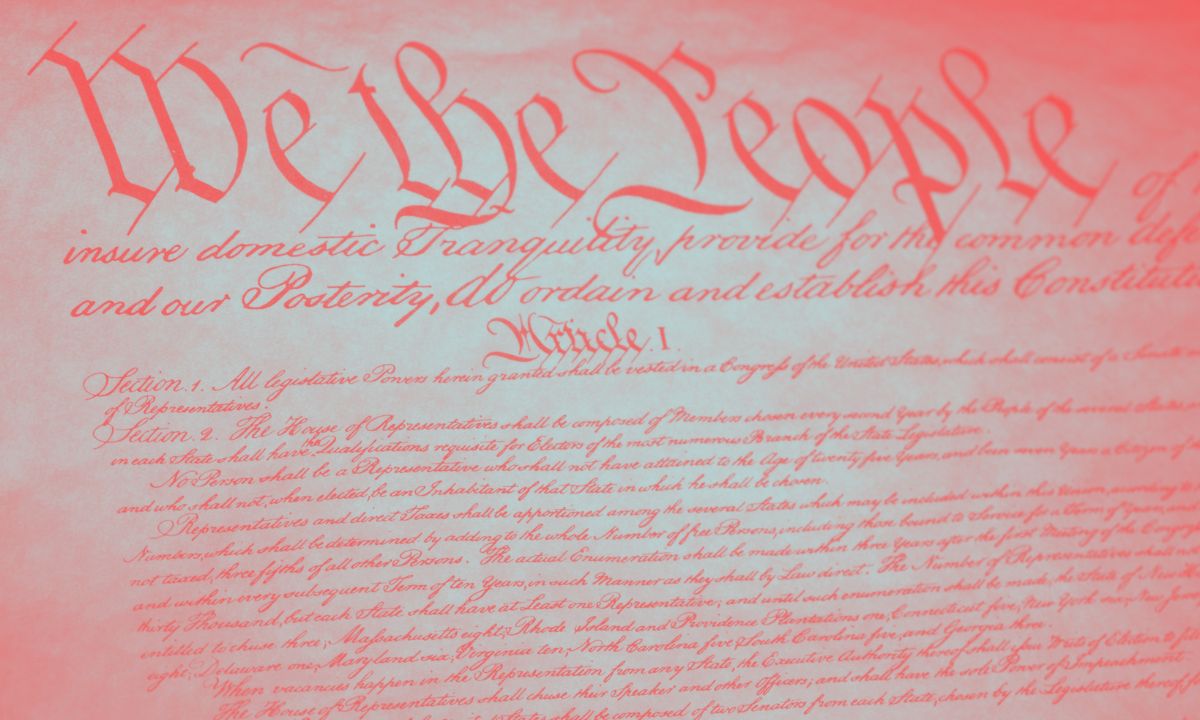There is Agreement on Civics Education — If You Know Where to Look
Bobb: 4 key principles should be at the core of a modern civics education, and they enjoy wide support across the political spectrum.

Get stories like these delivered straight to your inbox. Sign up for The 74 Newsletter
Correction appended May 24
“Do schools even teach civics anymore?”
I have fielded that question many times over the years — and it is disheartening for anyone who cares deeply about civic education.
But I understand.
Civics spent decades relegated to the backseat of American education as schools placed greater emphasis on subjects such as English, science and math.
But civics is garnering renewed attention now — and with that has come some difficult conversations.
Many teachers and school leaders are struggling to navigate district- and state-level debates about social studies curricula and standards, including how to teach civics and history. How should schools approach lessons about government and politics during these extremely polarizing times? What is the best way to broach contentious current events or historical issues?
These debates have become increasingly political, with the left and the right accusing each other of trying to force specific political ideologies on classrooms.
It is time to take a step back. Seeking the fundamental aspects of a quality, 21st century civics education does not need to be divisive.
Four key principles that should be at the core of a modern civics education. Evidence shows that these principles are educationally sound and enjoy wide support across the political spectrum.
Principle No. 1: Help students develop a foundation of knowledge
The Bill of Rights Institute works with more than 70,000 middle school and high school civics and history teachers nationwide. They understand that students need a firm understanding of their country, their government and their rights and responsibilities as citizens.
The importance of this basic civic knowledge enjoys wide support that transcends politics. As part of their Understanding America Study, researchers from the University of Southern California surveyed a representative sample of 3,751 American adults in 2022.
Researchers found several areas of broad agreement, and more than 90% of both Democrats and Republicans said they believed high school civics students should study topics such as the U.S. economy, the contributions of America’s founders, how to get involved in local politics and election integrity.
Principle No. 2: Tell America’s whole story
Learning about principles such as liberty and equality requires frank discussion of times when America failed to live up to them. Teaching students about slavery, Jim Crow laws and voting rights restrictions is not an assault on America’s principles. Instead, it teaches students that these principles must be fought for, pursued vigilantly and actively upheld.
Leaders such as Frederick Douglass and Martin Luther King, Jr. called for America to live up to its principles as part of the abolition and civil rights movements.
USC researchers found that more than 90% of surveyed Democrats and Republicans believe high school civics students should learn about slavery and the contributions of women and people of color.
A 2022 study from More in Common, an international nonprofit that studies polarization and social divisions, found that “Republicans and Democrats share common ground about how to teach our national story but hold inaccurate ideas about what the other side believes about teaching U.S. history.”
In other words, there is broad support for teaching America’s whole story, and differences are often more perceived than real.
Principle No. 3: Build critical thinking
The USC study also found overwhelming support for helping civics students develop critical thinking skills — a powerful antidote for the rampant polarization in America today.
Curriculum that includes point-counterpoint lessons teaches students to view issues from multiple perspectives and critically analyze their own positions. This can help them learn to appreciate other viewpoints and engage civilly, even with people they may disagree with.
Civics and history teachers regularly stress viewpoint diversity in their classrooms, and they play a crucial role in helping to develop future generations of critical thinkers.
Principle No. 4: Help students develop and apply good citizenship skills
Students do not stay in the classroom forever. They need to understand their rights and responsibilities as citizens.
That requires learning basic civic virtues, such as integrity, responsibility and respect, and developing citizenship skills, like how to engage in civil discourse and work within their communities to solve problems.
Students should be encouraged to apply their citizenship skills just as they would their math, science or geography skills. This is basic knowledge transfer, a sound educational principle that involves being able to apply learning across different situations.
In 2022, the Bill of Rights Institute launched a nationwide civic engagement contest called MyImpact Challenge that encourages students to develop service projects in their communities and connect them to constitutional principles such as liberty, equality, and justice. Participants applied their citizenship skills to launch food drives, train their peers in disaster preparedness, remove trash from waterways and launch a poetry and art contest where teens could reflect on equality.
Civic education is vital to the future of the country. While disagreement and debate can be healthy, they should not overshadow the broad areas of agreement that exist around core principles of a civic education. Those principles benefit educators, students and communities — and point a path forward for schools.
Correction: Principle 3 is based on the USC study.
Get stories like these delivered straight to your inbox. Sign up for The 74 Newsletter



